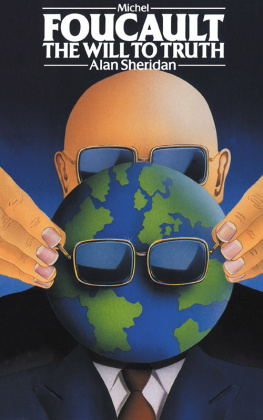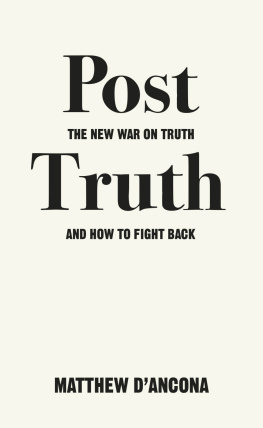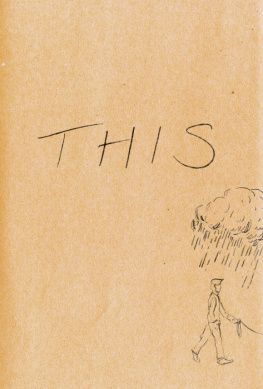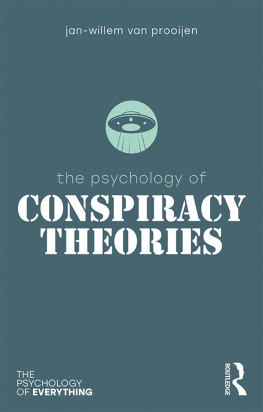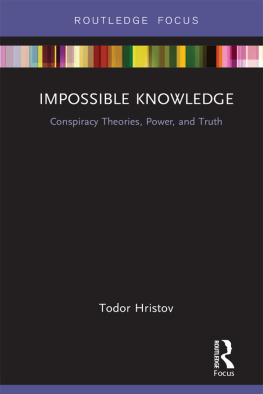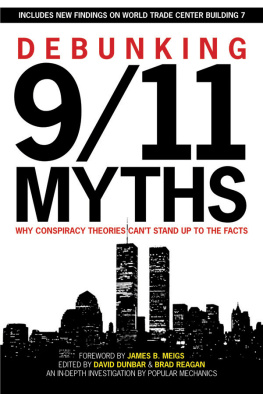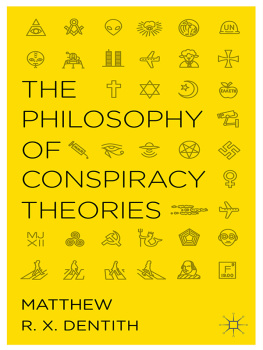Khristov - Impossible Knowledge: Conspiracy Theories, Power, and Truth
Here you can read online Khristov - Impossible Knowledge: Conspiracy Theories, Power, and Truth full text of the book (entire story) in english for free. Download pdf and epub, get meaning, cover and reviews about this ebook. City: Abingdon;Oxon;New York;NY, year: 2019, publisher: Routledge, genre: Politics. Description of the work, (preface) as well as reviews are available. Best literature library LitArk.com created for fans of good reading and offers a wide selection of genres:
Romance novel
Science fiction
Adventure
Detective
Science
History
Home and family
Prose
Art
Politics
Computer
Non-fiction
Religion
Business
Children
Humor
Choose a favorite category and find really read worthwhile books. Enjoy immersion in the world of imagination, feel the emotions of the characters or learn something new for yourself, make an fascinating discovery.
- Book:Impossible Knowledge: Conspiracy Theories, Power, and Truth
- Author:
- Publisher:Routledge
- Genre:
- Year:2019
- City:Abingdon;Oxon;New York;NY
- Rating:5 / 5
- Favourites:Add to favourites
- Your mark:
- 100
- 1
- 2
- 3
- 4
- 5
Impossible Knowledge: Conspiracy Theories, Power, and Truth: summary, description and annotation
We offer to read an annotation, description, summary or preface (depends on what the author of the book "Impossible Knowledge: Conspiracy Theories, Power, and Truth" wrote himself). If you haven't found the necessary information about the book — write in the comments, we will try to find it.
Khristov: author's other books
Who wrote Impossible Knowledge: Conspiracy Theories, Power, and Truth? Find out the surname, the name of the author of the book and a list of all author's works by series.
Impossible Knowledge: Conspiracy Theories, Power, and Truth — read online for free the complete book (whole text) full work
Below is the text of the book, divided by pages. System saving the place of the last page read, allows you to conveniently read the book "Impossible Knowledge: Conspiracy Theories, Power, and Truth" online for free, without having to search again every time where you left off. Put a bookmark, and you can go to the page where you finished reading at any time.
Font size:
Interval:
Bookmark:

Conspiracy theorists claim impossible knowledge, such as knowledge of the doings of a secret world government. Yet they accept this impossible knowledge as truth. In effect, conspiracy theories detach truth from knowledge.
Knowledge without power is powerless. And the impossible knowledge claimed by conspiracy theorists is rigorously excluded from the regimes of truth and power that is not even wrong. Yet conspiratorial knowledge is potent enough to be studied by researchers and recognized as a risk by experts and authorities.
Therefore, in order to understand conspiracy theories, we need to think of truth beyond knowledge and power. That is impossible for any scientific discipline because it takes for granted that truth comes from knowledge and that truth is powerful enough to destroy the legitimacy of any authority that would dare to conceal or manipulate it. Since science is unable to make sense of conspiracy theories, it treats conspiracy theorists as individuals who fail to make sense, and it explains their persistent nonsense by some cognitive, behavioral, or social dysfunction.
Fortunately, critical theory has developed tools able to conceive of truth beyond knowledge and power, and hence to make sense of conspiracy theories. This book organizes them into a toolbox which will enable students and researchers to analyze conspiracy theories as practices of the self geared at self-empowerment, a sort of political self-help.
Todor Hristov is a critical theorist based at the University of Sofia, Bulgaria.
Series Editors: Peter Knight
University of Manchester
Michael Butter
University of Tbingen
Conspiracy theories have a long history and exist in all modern societies. However, their visibility and significance are increasing today. Conspiracy theories can no longer be simply dismissed as the product of a pathological mind-set located on the political margins.
This series provides a nuanced and scholarly approach to this most contentious of subjects. It draws on a range of disciplinary perspectives including political science, sociology, history, media and cultural studies, area studies and behavioural sciences. Issues covered include the psychology of conspiracy theories, changes in conspiratorial thinking over time, the role of the Internet, regional and political variations and the social and political impact of conspiracy theories.
The series will include edited collections, single-authored monographs and short-form books.
Impossible Knowledge
Conspiracy Theories, Power, and Truth
Todor Hristov

First published 2019
by Routledge
2 Park Square, Milton Park, Abingdon, Oxon OX14 4RN
and by Routledge
52 Vanderbilt Avenue, New York, NY 10017
Routledge is an imprint of the Taylor & Francis Group, an informa business
2019 Todor Hristov
The right of Todor Hristov to be identified as author of this work has been asserted by him in accordance with sections 77 and 78 of the Copyright, Designs and Patents Act 1988.
All rights reserved. No part of this book may be reprinted or reproduced or utilised in any form or by any electronic, mechanical, or other means, now known or hereafter invented, including photocopying and recording, or in any information storage or retrieval system, without permission in writing from the publishers.
Trademark notice: Product or corporate names may be trademarks or registered trademarks, and are used only for identification and explanation without intent to infringe.
British Library Cataloguing-in-Publication Data
A catalogue record for this book is available from the British Library
Library of Congress Cataloging-in-Publication Data
A catalog record for this book has been requested
ISBN: 978-1-138-34682-6 (hbk)
ISBN: 978-0-429-42257-7 (ebk)
Typeset in Times New Roman
by Apex CoVantage, LLC
Conspiracy theories were fairly unfamiliar to my country before 1989.
They were popularized by Nikola Nikolov, a Bulgarian emigrant in the United States. I met him once in the quasi-baroque hallways of the University of Sofia. I was a student back then. He said that he had just arrived from the land of the free and asked me about the cafeteria. While we were enjoying our tripe soups, a Balkan delicacy with a dubious reputation, he told me all about the secret world government and offered a seductive discount on his book The Global Conspiracy (Nikolov 1990).
How do you know all this? I remember asking him. Nikolov explained that he was a reader in the Library of Congress. Later that day, after some research, I found out that the Library of Congress was publicly accessible, and I wondered how it was possible to discover the secrets of the world government in a public library, particularly if many paid with their lives for trying to disclose them, as Nikolov had mentioned.
Now I know that conspiracy theorists often claim to know the impossible, such as the doings of a secret world government. The goal of this book is to explain why. It is intended as an introduction to conspiracy theories from the perspective of critical theory, or, from a different vantage point, as an introduction to critical theory from the perspective of conspiracy theories.
Critical theory is an interdisciplinary field of knowledge organized around the discursive practice of critique. For the purposes of this book, we can define critique as an art of voluntary insubordination that involves questioning the truth of power and the power effects of truth through tactical articulation of singular, situated, subjugated knowledge of struggles (Foucault 1997, 32, 2004, 8). Or perhaps we can define critique by its effect:
[T]he immense and proliferating criticizability of things, institutions, practices and discourses; a sort of general feeling that the ground was crumbling beneath our feet, especially in places where it seemed most familiar, most solid, and closest to us, to our bodies, to our everyday gestures.
(Foucault 2004, 6)
Critical theory provides scattered comments rather than systematic analysis of conspiracy theories. However, reading critical theory from the marginal perspective of conspiracy theories offers at least two advantages:
- 1Such an approach can put conspiracy theories in a different perspective. They are usually analyzed as beliefs, narratives, or representations, but conspiracy theories are also acts, and the concepts outlined in this book enable one to analyze their pragmatics and dramatics, i.e. how their meaning is modified by the situation and how they modify their situation and their subject (Foucault 2008, 68).
- 2The approach can lead to an alternative problematization of the nexus of knowledge, power, and truth. We often take for granted that knowledge is founded on authority and associated with truth, but conspiracy theorists claim to know the impossible. So, their impossible claims are dislodged from power and truth. Although these claims are not a hard currency, conspiracy theorists still ascribe to them the value of knowledge. How is it possible to value as knowledge impossible claims beyond power and truth? If you think that this question is relevant only to conspiracy theorists, then you should take into account that impossible knowledge claims are quite more common than conspiracy theories. Take for example a venture capitalist who claims knowledge of the returns on investment in a future technology that may never come into existence; or a middle-aged office worker who desperately seeks to know where his life went wrong, as if ordinary lives break only at a single point; or a housewife consumed with anxiety about the personal and financial costs of changing her life by abandoning herself to the pleasures of eating, praying, loving, and the most expensively priced of all tourism; or a student who needs to know if she made the right choice by investing years of her life as well as a significant amount of student loan debt in an education that could be easily made redundant by the labor market. Unfortunately, in our professional, personal, social, or everyday lives, we can easily find ourselves in a double bind, in which it is impossible to know and at the same time impossible not to know, or at least impossible to bear not knowing. Yet this double bind is unthinkable by means of the conventional concept of knowledge embedded in authority and truth. Then, if we take into account such impossible situations, what is knowledge?
Font size:
Interval:
Bookmark:
Similar books «Impossible Knowledge: Conspiracy Theories, Power, and Truth»
Look at similar books to Impossible Knowledge: Conspiracy Theories, Power, and Truth. We have selected literature similar in name and meaning in the hope of providing readers with more options to find new, interesting, not yet read works.
Discussion, reviews of the book Impossible Knowledge: Conspiracy Theories, Power, and Truth and just readers' own opinions. Leave your comments, write what you think about the work, its meaning or the main characters. Specify what exactly you liked and what you didn't like, and why you think so.

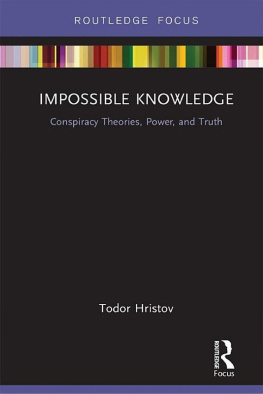
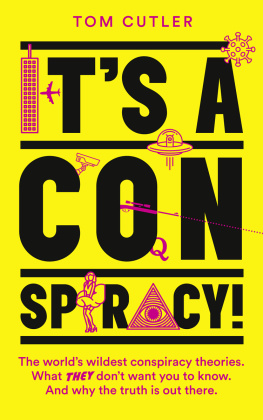
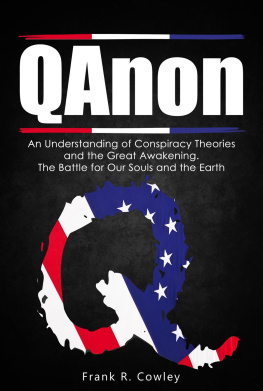
![Monte Cook - The Skeptics Guide to Conspiracies: From the Knights Templar to the JFK Assassination: Uncovering the [Real] Truth Behind the Worlds Most Controversial Conspiracy Theories](/uploads/posts/book/346601/thumbs/monte-cook-the-skeptic-s-guide-to-conspiracies.jpg)
